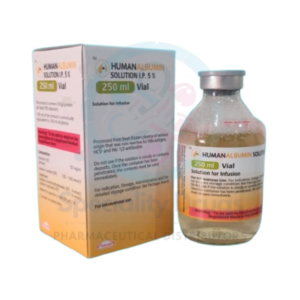What is Amiodarone Intravenous Infusion IP?
Amiodarone Intravenous Infusion IP is a prescription medication used for the treatment and management of certain serious heart rhythm disorders (arrhythmias). It contains amiodarone hydrochloride as the active ingredient and is administered directly into a vein (IV infusion) under strict medical supervision.
This formulation ensures a rapid onset of action, making it suitable for emergency situations or when oral administration is not feasible.
What is the use of Amiodarone Intravenous Infusion IP?
Amiodarone Intravenous Infusion IP is primarily used for:
-
Treating life-threatening ventricular arrhythmias (e.g., ventricular tachycardia, ventricular fibrillation).
-
Stabilizing the heart’s rhythm in critically ill patients.
-
Controlling irregular heartbeats when other treatments have proven ineffective or are not tolerated.
Benefits of Amiodarone Intravenous Infusion IP
-
Rapid Action: Provides quick control of dangerous arrhythmias.
-
Effective Rhythm Control: Helps restore and maintain normal heart rhythm.
-
Life-Saving Intervention: Used in emergency and critical care to prevent cardiac arrest.
-
Alternative Route: Suitable for patients unable to take oral medications.
How is Amiodarone Intravenous Infusion IP administered?
This medicine is given as a slow intravenous infusion by a healthcare professional in a hospital setting. The dose and duration depend on the patient’s condition, response, and medical history.
Side Effects of Amiodarone Intravenous Infusion IP
While effective, amiodarone can cause side effects. Common or notable side effects include:
-
Low blood pressure (hypotension)
-
Slowed heart rate (bradycardia)
-
Nausea or vomiting
-
Injection site reactions (pain, redness, swelling)
-
Liver function changes
-
Lung toxicity (rare but serious)
-
Thyroid dysfunction with prolonged use
Your doctor will monitor you closely to detect and manage these effects promptly.
Precautions and Warnings
-
This medicine should only be used under expert supervision.
-
Regular monitoring of heart function, liver tests, and lung health is essential.
-
Inform your doctor about all other medications you are taking to avoid dangerous interactions.
-
Not recommended during pregnancy or breastfeeding unless clearly necessary.
-
What is Amiodarone Intravenous Infusion IP used for?
It is primarily used to treat and prevent life-threatening ventricular arrhythmias (e.g., ventricular tachycardia, ventricular fibrillation) and sometimes for supraventricular arrhythmias when other treatments fail. -
How is Amiodarone IV infusion administered?
It is given intravenously via a central line or large peripheral vein, typically as a loading dose followed by a maintenance infusion, under cardiac monitoring. -
What are the common side effects of Amiodarone IV infusion?
Hypotension, bradycardia, phlebitis at the infusion site, nausea, and occasionally respiratory distress. -
Why does Amiodarone infusion need cardiac monitoring?
Because it can cause severe bradycardia, conduction blocks, or proarrhythmia, continuous ECG monitoring is essential. -
How should Amiodarone IV be diluted before infusion?
It is usually diluted in 5% dextrose solution (never in normal saline due to precipitation) to the recommended concentration before administration. -
Can Amiodarone IV cause hypotension?
Yes. Rapid infusion or high doses can lead to significant hypotension due to vasodilation and negative inotropic effects. -
What precautions should be taken during infusion?
-
Use an in-line filter (0.22 micron)
-
Avoid light exposure (protect from light)
-
Infuse slowly over recommended time
-
Continuous cardiac and blood pressure monitoring
-
-
How long does it take for Amiodarone to act?
Onset of action is typically within minutes to hours, depending on the loading dose. -
Can Amiodarone IV infusion interact with other drugs?
Yes, it interacts with many drugs, including digoxin, warfarin, beta-blockers, and statins. Careful monitoring and dose adjustments are necessary. -
What are the contraindications for Amiodarone IV?
-
Severe sinus-node dysfunction
-
Second- or third-degree AV block (without pacemaker)
-
Severe bradycardia
-
Known iodine hypersensitivity
-
-
How long can the prepared infusion remain stable?
Once diluted, the solution is usually stable for up to 24 hours, but always refer to manufacturer guidelines. -
What should be done if severe bradycardia or hypotension occurs during infusion?
Stop or slow the infusion, provide supportive treatment (fluids, vasopressors), and consider temporary pacing if necessary. -
Is Amiodarone safe in pregnancy and breastfeeding?
It is generally not recommended during pregnancy or breastfeeding unless benefits outweigh risks, as it can cross the placenta and be excreted in breast milk. -
How should Amiodarone infusion be discontinued?
Gradually taper if possible, switching to oral maintenance therapy under supervision to avoid recurrence of arrhythmia. -
What are the special considerations in elderly patients?
Elderly patients are at higher risk for bradycardia, hypotension, and thyroid dysfunction, requiring close monitoring and often lower doses.






Reviews
There are no reviews yet.